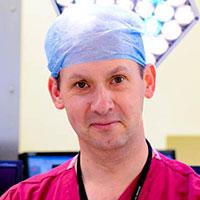Human factors are of pivotal importance to both patient safety and doctors’ wellbeing, say Peter Brennan and Tista Chakravarty-Gannon
When doctors go to work, they do not set out to cause harm, but human error affects us all and can never be completely eliminated. When an error occurs in healthcare, it can be relatively minor and inconsequential, or catastrophic, leading to serious morbidity or even the death of a patient. It’s been estimated that as many as one in 20 patients experience some kind of preventable harm due to medical care, so it is a serious concern across the world.
The system failures that can lead to medical error often arise at an organisational (employer) level long before any error actually happens at the hands of an individual or a team.
The high profile case involving Dr Hadiza Bawa-Garba raised questions about how the context in which doctors work should be considered when evaluating their fitness to practise and performance. The case was connected to various system failures, including unfamiliarity with the work environment, excessive workload and time pressure, miscommunications, and technology issues. In the wake of the General Medical Council’s (GMC’s) regulatory role in the case, many in the medical profession voiced fears that they work under similar challenges every day.
So how should regulators account for this context? We think that an upstream or preventative approach can help to avoid patient harm and the unnecessary referral of professionals to the regulator.
To this end, the GMC has an outreach service—which works with doctors, employers, medical students, and patients—to improve collaboration and mutual understanding. While there is positive progress as this outreach service (previously called the liaison team) now engages with approximately 40 000 doctors and medical students every year, the above case made clear that there is a need to do more.
The concerns the GMC has heard from the profession about the demands and stresses of their working environment led it to develop its Supporting a Profession Under Pressure (SAPUP) initiative. The initiative has brought together new and existing priority programmes to address the impact of system pressures on medical practice and find ways to improve the day to day working of doctors and medical students. The work covered topics such as human factors, fairness, wellbeing, reflective practice, induction, raising concerns, and medical manslaughter, among others. Although the GMC already looked at context in fitness to practise processes, it has now rolled out training for all of its decision makers.
As part of the SAPUP programme, the GMC commissioned a review of student and doctors’ wellbeing, Caring for Doctors, Caring for Patients, which came back with eight recommendations to help deliver safe, supportive, and inclusive environments, and compassionate cultures across the UK. The GMC also commissioned the Fair to refer? report that investigated the disproportionately high referral rate of ethnic minority doctors and overseas graduates to the GMC. It found that these differences may be rooted in insufficient support at induction and a lack of feedback about progress, which can leave doctors feeling isolated.
The well known Swiss cheese model shows us how error is unlikely to occur in isolation. We therefore hope it will be reassuring for doctors to know that the GMC’s fitness to practise team have embraced human factors as potential contributory causes. Furthermore, through its educational role, the GMC mandates that human factors are taught in undergraduate and postgraduate curriculums.
Other organisations also recognise the huge importance of this area. In a recent document Opening the door to change, the Care Quality Commission (CQC) emphasised the importance of training in human factors, as well as a just culture across healthcare. The fear of being blamed is one of the many reasons why professionals do not speak up or report errors. We are years behind other high reliability organisations (HROs), including rail, aviation, and nuclear industries, in our awareness of human factors and having a just culture.
If we want to embed these across healthcare, we need to learn from how other HROs have adopted these initiatives successfully. This is not going to happen overnight and will undoubtedly take years to complete. A top down approach from the government(s) of the UK, regulators such as the GMC and CQC, royal colleges, and employing bodies, coupled with bottom up engagement by healthcare professionals is likely to be the key to success.
Healthcare practitioners can also reduce their own chances of making a mistake by being aware of and addressing the many human factors within their control that contribute to error. These include optimising performance by taking regular breaks, eating and drinking throughout the day, lowering team hierarchy, treating each other with civility and respect, and ensuring effective communication and support for those more junior. This might seem like common sense, but how often do we leave this at the front door when we arrive for work? For example, one study found that junior doctors were more likely to be oliguric than the patients they were caring for because they had not taken time to look after themselves.
What more could the GMC do to help the profession? The regulator is aware that its professional relationship with doctors has suffered in recent years, and while it is ultimately responsible for protecting patients, the GMC also has a key role in medical education, influencing the environments in which doctors work for the better, and supporting doctors to deliver good care for their patients. The GMC have set their stall out to improve these things through the recently commissioned work and support programmes mentioned earlier.
In our opinion, human factors are of pivotal importance to both patient safety and doctors’ wellbeing. Together with the GMC’s new Professional Behaviours and Patient Safety Programmes (PBPS) being piloted across the UK, which are designed to help improve doctors’ skills and confidence in addressing unprofessional behaviours, we hope this recent work shows that the GMC does care about the profession and wants to restore trust and confidence. More importantly, these initiatives should reduce medical error, improve patient safety and professional welfare, as well as enhancing team working. A win-win for all that couldn’t come soon enough.
 Peter A Brennan, consultant maxillofacial surgeon and honorary professor of surgery, Queen Alexandra Hospital, Portsmouth. Twitter @BrennanSurgeon
Peter A Brennan, consultant maxillofacial surgeon and honorary professor of surgery, Queen Alexandra Hospital, Portsmouth. Twitter @BrennanSurgeon
Competing interests: None declared.
 Tista Chakravarty-Gannon, head of GMC Welcome to UK Practice. Twitter @tcgannon
Tista Chakravarty-Gannon, head of GMC Welcome to UK Practice. Twitter @tcgannon
Competing interests: Nothing further to declare.
